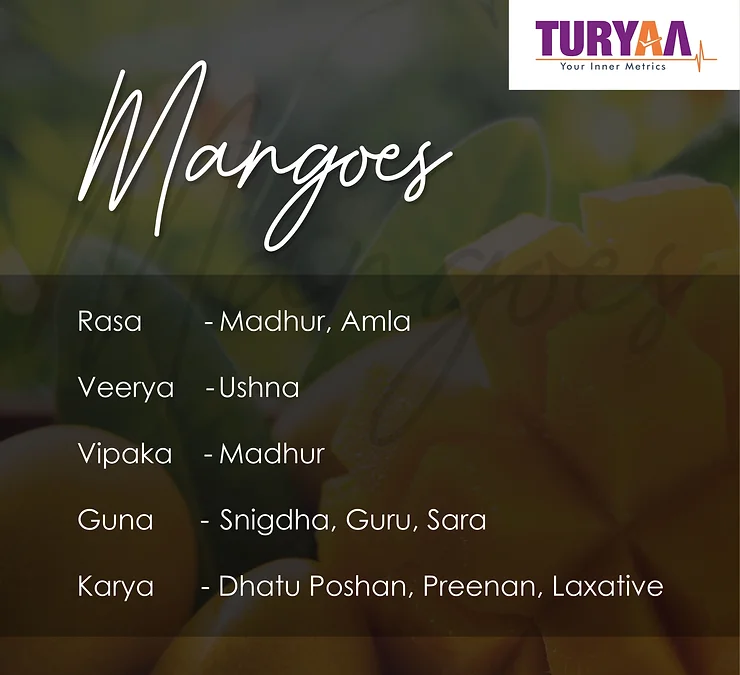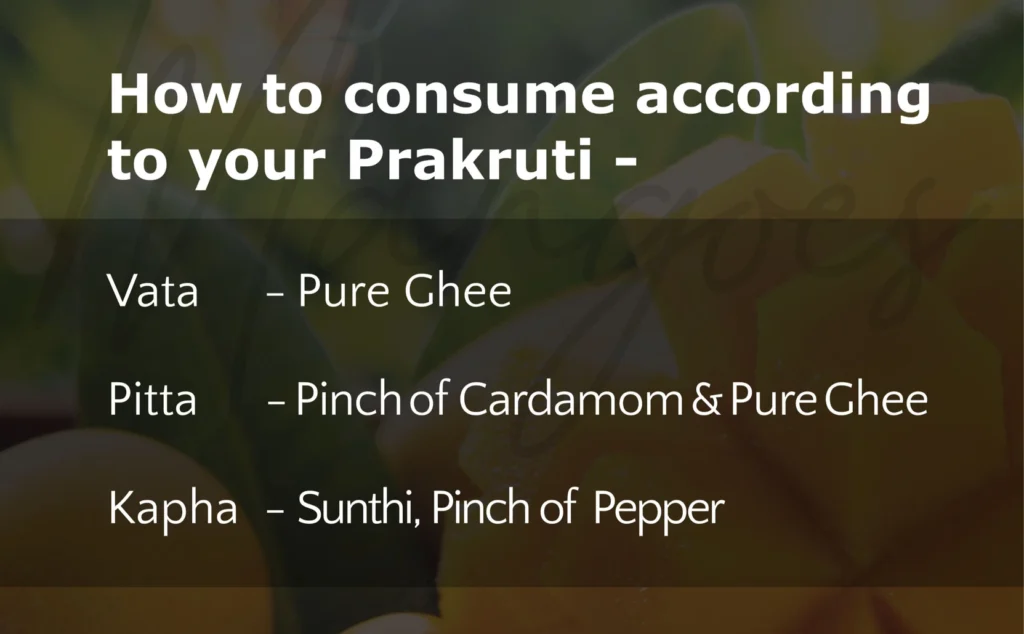Keep Calm & Eat Aam

Happy Mango Days.
Summer vacations are incomplete without eating Mangoes. Mango, commonly known as Aam, is called the ‘King of Fruits’. It is one of the most consumed fruits during the summer season and has many varieties including Alphanso, Kesar, etc.
Ayurved mentioned the properties of different stages of Mangoes along with their, health benefits. Many recipes having the main ingredient as mango are also described briefly in Ayurved. Here we are enlightening about common rules for eating Mangoes for gaining maximum benefits.
As we all know, Mangoes are an excellent source of nourishment for the body as they are a rich source of vitamin A, vitamin C, iron, and potassium. Due to this, the appropriate daily intake of Mango, alone or along with milk, can help improve appetite and boost energy levels. It also improves immunity and protects from heatstroke.
Generally, we can classify Mangos in the following 3 categories
1. Unripe Mangoes – When mangoes are not properly ripened they are extremely sour and very hot in nature. They vitiate all three doshas as well as rakta or blood. Therefore, always ensure that full-grown mangoes are well ripened and sweet before eating.
2. Naturally ripened Mangoes – The tree-ripened mangoes are heavy in nature as compared to artificially ripened ones. Tree-ripened mango has more of a sour taste than artificially ripened mango, which may lead to pitta provocation, but is superior in terms of calming Vata.
3. Artificially ripened Mangoes –According to Ayurveda, interestingly artificially ripened mangoes are light to digest. They reduce both Vata and Pitta. They are more sweet and ideal for eating.

The way in which Mangoes are consumed and their properties –
1. Squeezed mango – A squeezed mango is considered to be lighter and easier to digest than a sliced mango.
2. Sliced mango is very sweet and tasty, cooling, nourishing, and reduces Vata dosha.
3. Mango juice / Aamras is tonic, heavy, laxative, and pacifies Vata – pitta. It tends to increase Kapha but is nourishing and strength-giving in nature.
4. Mango mixed with milk – you can blend mango and milk or eat a sliced mango and follow it with a cup of warm milk or saffron milk. Mango mixed with milk calms Vata and pitta, is a tasty, nourishing, tonic, aphrodisiac, and improves complexion. It is sweet and cooling.
Dietary rules while eating Mangos
1. Always monitor the number of mangoes while consuming them. 1 to 2 mangoes or 1 bowl of Aamras is recommended for healthy adults with a good appetite.
2. Do not consume mango or Aamras at bedtime because it is very heavy for digestion.
3. Always add a pinch of dried ginger powder in Aamras. It will be beneficial for digestion.
4. You can add cow milk in Aamras which makes it lighter and easily absorbable. Don’t add other than cow milk to it. Otherwise, it will be heavier and will have an additional load on digestion.
5. Add a pinch of black pepper powder if you are prone to Kapha disorders and also recommended for the kid age group because kids are more prone to Kapha disorders.

6. Recommendations for Vata Prakruti – It reduces Vata. It is a good tonic, provides good muscle strength, and is good for immunity also. Adding pure cow ghee or dried ginger powder is best for Vata prakruti people but always keep eye on digestion while consuming it.
7. Recommendation for Pitta Prakruti – Slightly unripe mangoes are Pittakar. Add some cow milk and 1 teaspoon of cow ghee, and a pinch of cardamom powder to it. It will make it easier to digest.
8. Recommendation for kapha Prakriti – Aamaras proves Kaphakar in kapha prakriti people. It will be troublesome if they are already having a low digestive fire. Adding black pepper powder will be helpful. Restrict the quantity of Aamras. Try to avoid a mixture of Aamras and milk and ghee.

Author:
Dr. Gayatri Kulkarni – Mulye (MD Ayurved),
Vaidya Tejaswini Bhale – Borse (Ayurveda Physician),
Shruti Kulkarni (Clinical Nutritionist)
For regular updates, like and follow:


